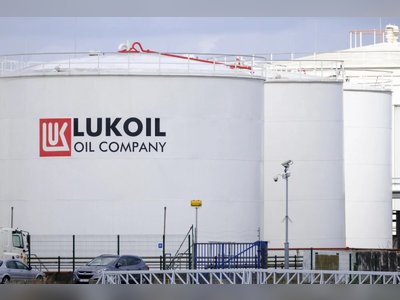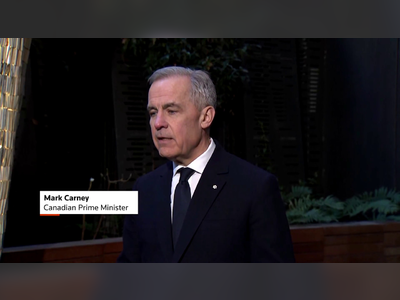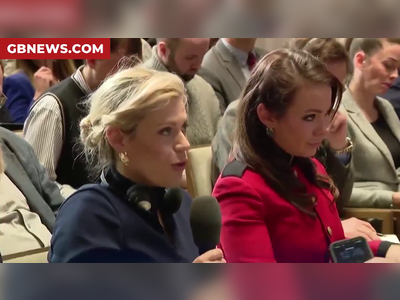New Political Winds in Turkey as President Acknowledges Defeat
Opposition Victory in Turkish Local Elections Deals Blow to Erdoğan's Authoritarian Ambitions.
In a significant victory in the Turkish local elections, the leading opposition party, the Republican People’s Party (CHP), maintained control of Istanbul and Ankara, and made further advances, striking a blow against President Recep Tayyip Erdoğan's further authoritarian aspirations.
In Istanbul, the country’s largest city and economic hub, Mayor Ekrem İmamoğlu, a CHP politician, won with 50.6 percent of the votes, a ten percent lead. Mansur Yavas, the mayor of the capital city Ankara, retained his mandate against his party-affiliated challenger with a resounding 25 percentage point advantage.
According to Sunday night reports, the CHP came out ahead in 36 of Turkey’s 81 provinces, capturing many bastions previously held by President Recep Tayyip Erdoğan’s ruling Justice and Development Party (AKP). Nationally, the CHP secured 37 percent of the votes compared to 36 percent for the AKP, marking its largest electoral victory since the current president came to power two decades ago.
President Erdoğan acknowledged the defeat before his followers, but downplayed its significance, stating his party had "lost altitude" nationwide. He expressed regret for not achieving the desired results after last May's electoral victory and vowed to continue the economic program introduced last year aimed at fighting inflation.
Erdoğan had made significant efforts to regain control of key cities five years after the CHP's 2019 victory in Ankara and Istanbul, which broke his image of invincibility. The 70-year-old president, whose political career started in Istanbul as mayor in 1994, faces a revitalized opposition, which came together despite being divided and demoralized by last May's parliamentary and presidential election losses. "Today, the voters decided to change the image of Turkey that has been formed over the last 22 years, and to open the door to a new political atmosphere," said Özgür Özel, the CHP chairman, on Sunday night to cheering supporters.
Sinan Ülgen, director of the Istanbul-based think tank Edam, told the AP news agency that the surprising result was due to voters wanting to punish the ruling party for the severe economic situation. Rising inflation has troubled many Turkish households in affording basic goods, leading to a decrease in AKP supporters or votes for other parties. Of the 61 million eligible voters, 76 percent went to the polls, a decrease from last year's 87 percent.
Ekrem Imamoglu, who outpaced AKP’s candidate, former Environment Minister Murat Kurum, ran for the mayoral seat of Istanbul without the support of some parties that had helped him win in 2019. Both the pro-Kurdish Peoples’ Democratic Party (HDP) and the nationalist IYI party fielded their own candidates. The six-party opposition alliance led by the CHP collapsed after failing to capitalize on the economic crisis and the government's weak response to last year's devastating earthquake. However, the CHP gained new momentum after Özgür Özel replaced Kemal Kilicdaroglu, who had led the party for 13 years and faced defeat as the coalition's presidential candidate.
Ülgen sees the current result as positioning İmamoğlu as a possible leader of the opposition and a challenger to Erdoğan in the 2028 presidential election. Analysts believe a strong performance by the ruling AKP would have reinforced the Turkish president's resolve to establish an authoritarian and Islamist regime, and to adopt a new constitution ensuring he could remain in power beyond the end of his mandate in 2028.
In Istanbul, the country’s largest city and economic hub, Mayor Ekrem İmamoğlu, a CHP politician, won with 50.6 percent of the votes, a ten percent lead. Mansur Yavas, the mayor of the capital city Ankara, retained his mandate against his party-affiliated challenger with a resounding 25 percentage point advantage.
According to Sunday night reports, the CHP came out ahead in 36 of Turkey’s 81 provinces, capturing many bastions previously held by President Recep Tayyip Erdoğan’s ruling Justice and Development Party (AKP). Nationally, the CHP secured 37 percent of the votes compared to 36 percent for the AKP, marking its largest electoral victory since the current president came to power two decades ago.
President Erdoğan acknowledged the defeat before his followers, but downplayed its significance, stating his party had "lost altitude" nationwide. He expressed regret for not achieving the desired results after last May's electoral victory and vowed to continue the economic program introduced last year aimed at fighting inflation.
Erdoğan had made significant efforts to regain control of key cities five years after the CHP's 2019 victory in Ankara and Istanbul, which broke his image of invincibility. The 70-year-old president, whose political career started in Istanbul as mayor in 1994, faces a revitalized opposition, which came together despite being divided and demoralized by last May's parliamentary and presidential election losses. "Today, the voters decided to change the image of Turkey that has been formed over the last 22 years, and to open the door to a new political atmosphere," said Özgür Özel, the CHP chairman, on Sunday night to cheering supporters.
Sinan Ülgen, director of the Istanbul-based think tank Edam, told the AP news agency that the surprising result was due to voters wanting to punish the ruling party for the severe economic situation. Rising inflation has troubled many Turkish households in affording basic goods, leading to a decrease in AKP supporters or votes for other parties. Of the 61 million eligible voters, 76 percent went to the polls, a decrease from last year's 87 percent.
Ekrem Imamoglu, who outpaced AKP’s candidate, former Environment Minister Murat Kurum, ran for the mayoral seat of Istanbul without the support of some parties that had helped him win in 2019. Both the pro-Kurdish Peoples’ Democratic Party (HDP) and the nationalist IYI party fielded their own candidates. The six-party opposition alliance led by the CHP collapsed after failing to capitalize on the economic crisis and the government's weak response to last year's devastating earthquake. However, the CHP gained new momentum after Özgür Özel replaced Kemal Kilicdaroglu, who had led the party for 13 years and faced defeat as the coalition's presidential candidate.
Ülgen sees the current result as positioning İmamoğlu as a possible leader of the opposition and a challenger to Erdoğan in the 2028 presidential election. Analysts believe a strong performance by the ruling AKP would have reinforced the Turkish president's resolve to establish an authoritarian and Islamist regime, and to adopt a new constitution ensuring he could remain in power beyond the end of his mandate in 2028.
Translation:
Translated by AI
AI Disclaimer: An advanced artificial intelligence (AI) system generated the content of this page on its own. This innovative technology conducts extensive research from a variety of reliable sources, performs rigorous fact-checking and verification, cleans up and balances biased or manipulated content, and presents a minimal factual summary that is just enough yet essential for you to function as an informed and educated citizen. Please keep in mind, however, that this system is an evolving technology, and as a result, the article may contain accidental inaccuracies or errors. We urge you to help us improve our site by reporting any inaccuracies you find using the "Contact Us" link at the bottom of this page. Your helpful feedback helps us improve our system and deliver more precise content. When you find an article of interest here, please look for the full and extensive coverage of this topic in traditional news sources, as they are written by professional journalists that we try to support, not replace. We appreciate your understanding and assistance.

















